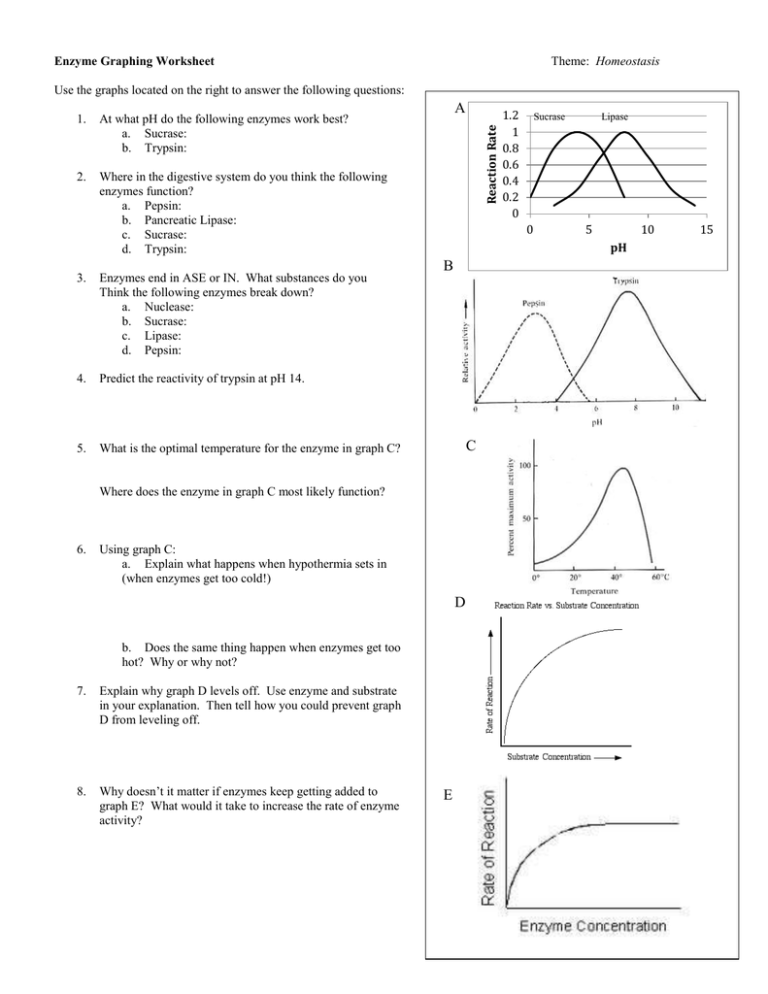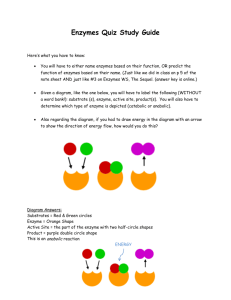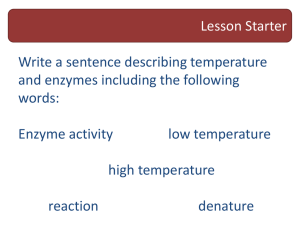Enzyme Graphing & Structure Worksheet: Homeostasis Theme
advertisement

Enzyme Graphing Worksheet Theme: Homeostasis Use the graphs located on the right to answer the following questions: At what pH do the following enzymes work best? a. Sucrase: b. Trypsin: 2. Where in the digestive system do you think the following enzymes function? a. Pepsin: b. Pancreatic Lipase: c. Sucrase: d. Trypsin: 3. Enzymes end in ASE or IN. What substances do you Think the following enzymes break down? a. Nuclease: b. Sucrase: c. Lipase: d. Pepsin: 4. Predict the reactivity of trypsin at pH 14. 5. What is the optimal temperature for the enzyme in graph C? A Reaction Rate 1. C D b. Does the same thing happen when enzymes get too hot? Why or why not? Explain why graph D levels off. Use enzyme and substrate in your explanation. Then tell how you could prevent graph D from leveling off. 8. Why doesn’t it matter if enzymes keep getting added to graph E? What would it take to increase the rate of enzyme activity? Lipase 5 10 pH B Using graph C: a. Explain what happens when hypothermia sets in (when enzymes get too cold!) 7. Sucrase 0 Where does the enzyme in graph C most likely function? 6. 1.2 1 0.8 0.6 0.4 0.2 0 E 15 Enzyme Structure Worksheet Theme: Structure Meets Function Pick a digestive enzyme. Draw a diagram to show the activity of that digestive enzyme on the appropriate polymer. (ex. Sucrase, Amylase, Trypsin, Lipase, Pepsin) In your diagram label: enzyme, substrate, active site Then answer the following questions: 1. Transfer of Energy and Matter: Is an enzyme used up in a chemical reaction? 2. Transfer of Energy and Matter: a. How would your diagram be different if the enzyme activity was anabolic instead of catabolic? (Eg. an enzyme to build muscle proteins). b. Do digestive enzymes help complete dehydration synthesis or hydrolysis reactions? Explain. 3. Structure Meets Function: What would happen to the enzyme if denaturation occurred? Explain two things that might denature your enzyme. Then explain how and why this would affect the function of your enzyme!

